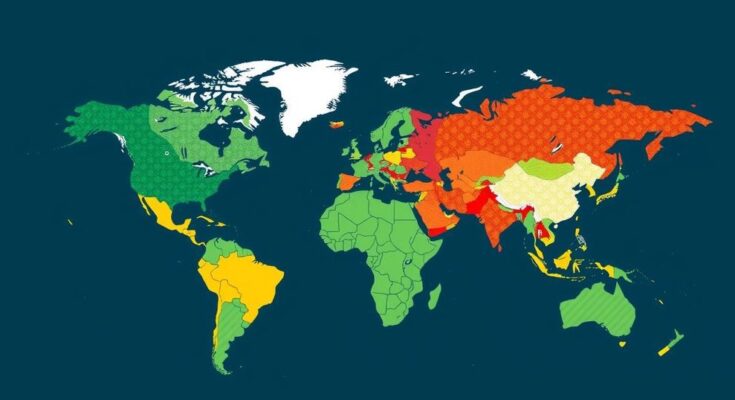The 29th U.N. Climate Conference in Baku represents a continuation of negotiations that began in 1995. Key historical moments include the establishment of the UNFCCC, the Kyoto Protocol, and the Paris Agreement. The conferences have faced both progress and setbacks, with urgent calls for action highlighted by increasing climate risks. COP28 emphasizes the necessity of transitioning away from fossil fuels to address climate challenges effectively.
The 29th Annual U.N. Climate Conference in Baku, Azerbaijan, continues the global dialogue on climate change that began with the inaugural Conference of the Parties (COP) in 1995. Over the years, the negotiations have evolved significantly, marked by pivotal events and agreements that reflect the urgent need to address global warming and reduce greenhouse gas emissions. Key milestones include the establishment of the U.N. Framework Convention on Climate Change at the 1992 Rio Earth Summit, the adoption of the Kyoto Protocol in 1997, and the landmark Paris Agreement forged in 2015. Each conference has pulled nations together to develop initiatives aimed at combating climate change, albeit with varying degrees of success and commitment from participating countries. Understanding the history of U.N. climate negotiations highlights the struggle and ambition of nations to confront climate change. The scientific community’s early warnings in the 1800s led to increasing awareness, and by the late 20th century, the U.N. began formalizing international cooperation through the UNFCCC. Each COP has represented both advancements and setbacks in the pursuit of comprehensive climate agreements, influenced by political dynamics, economic considerations, and societal pressures. The importance of the COPs cannot be overstated, as they serve as a global platform for dialogue, negotiation, and commitment to climate action. Notable achievements include the Kyoto Protocol’s ratification in 2005 and the engagement created by Greta Thunberg’s activism that mobilized youth globally around climate issues. However, challenges such as the withdrawal of the United States from the Paris Agreement under President Trump illustrate the difficulties in reaching consensus. The need for urgent action was starkly emphasized by the Intergovernmental Panel on Climate Change’s warnings of imminent climate risk, culminating in COP27’s establishment of a Loss and Damage Fund for climate-related disasters. The recent dialogues at COP28 further underscore the commitment of nation-states to transition away from fossil fuels, aiming for sustainability in the face of ongoing climate threats. The extensive timeline of climate negotiations shows that while progress has been made, the path forward is fraught with challenges requiring unified effort, transparency, and innovation to mitigate the climate crisis effectively.
The essence of U.N. climate negotiations is rooted in the global recognition of climate change as a critical threat to humanity and the ecosystem. From the late 1800s when scientific inquiry began to unravel the complexities of greenhouse gases, to the pivotal conferences organized under the United Nations framework, these negotiations reflect an evolving understanding of climate impacts. The establishment of binding agreements showcases the collaborative efforts of nations to act collectively against climate change, aligning their policies and strategies to work towards both mitigation of emissions and adaptation to climate impacts. The ongoing dialogue and actions from parties involved serve to influence national policies and raise awareness amongst communities, emphasizing the urgency of the climate crisis.
In conclusion, the journey through U.N. climate negotiations highlights a significant collective effort to address climate change, with landmark agreements that lay the foundation for future action. This ongoing dialogue reflects both the challenges and opportunities faced by nations as they navigate their responsibilities toward sustainable development. As we proceed towards COP29, the focus on transitioning away from fossil fuel dependence and enhancing commitments to emission reductions remain crucial for safeguarding the planet’s future. Continued engagement and collective action are essential in achieving tangible progress and effecting meaningful change in combating climate change.
Original Source: www.swissinfo.ch




